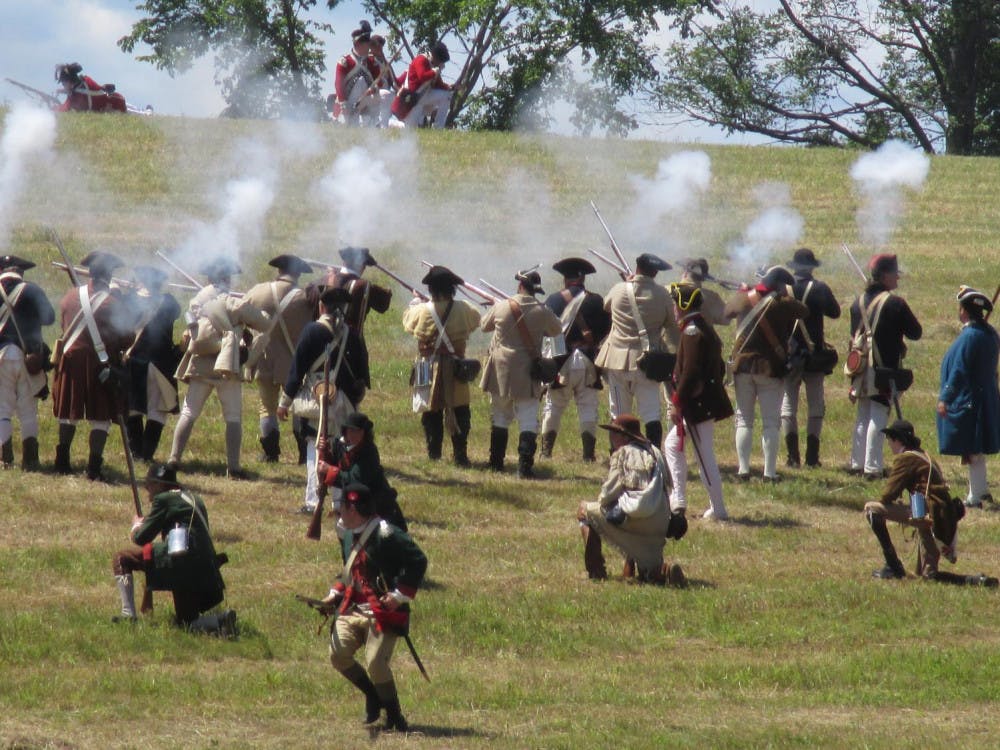Vermont is looking years ahead to July 4, 2026, which marks the 250th anniversary of the ratification of the Declaration of Independence. This past December, Gov. Phil Scott signed an executive order establishing a 15-member commission to plan the semiquincentennial celebration of U.S. independence.
But the events of the semiquincentennial are not limited to a single day — in fact, they are not even limited to a single year.
“It’s a multi-year celebration,” Laura Trieschmann, chairperson of the commission and the Vermont state historic preservation officer, said in an interview with The Campus. “We’re still in the very early planning stages...but events and celebrations and lectures and exhibits will probably start showing up around 2025.”
According to Trieschmann, most of the events planned by Vermont’s commission will be planned for 2026, so that those commemorating certain battles or historical moments that took place in 1776 will occur exactly 250 years later.
Commemorations and celebrations in Vermont’s series of semiquincentennial events will continue through 2027, since 1777 featured several key events in the state’s history — including the establishment of Vermont as its own republic, the Battle of Hubbardton and the Battle of Bennington.
The commission plans to extend the focus of commemorative events beyond state history. Instead, they will strike a balance by incorporating a peek into how Vermont has changed — or not — since the Revolutionary War era.
The events will not only celebrate or critically examine the well-known figures within the state’s and country’s histories but will also illuminate the lives of the everyday person, including marginalized people and those whose stories have been neglected in the annals of American and Vermont history. The women of the time will be one subject of focus, as the commission is dedicated to organizing events that reflect the politics of domestic life, and not just the politics of battle.
All fifty states will likely organize their own series of semiquincentennial events — even those that were established long after the Revolutionary War era. According to Trieschmann, Vermont was the ninth state to formally establish a committee, and some states — such as Massachusetts and New Jersey — have had commissions planning events for years.
One of the Vermont commission’s priorities is to ensure that the events of the semiquincentennial reflect the period of the Revolutionary War as accurately as possible, and part of this is a focus on Black and Indigenous peoples who lived in that era.
“History continues to evolve, so we can only be as accurate as what we know,” Trieschmann said. “But we certainly know that history has not been very kind to itself, in that African American and slave trade histories or the actions against Native Americans have not all been respected as they should be, so we want to make sure that there is inclusion there.”
So far, the commission has only met once, and future meetings will be open to the public. The next meeting is scheduled for May 26, where the formation of committees — such as event committees and the education committee, which will petition that some of the relevant history be put into the state curriculum by 2025 — will be discussed.

Becca Amen '22 is the Senior Local Editor.
She previously served as a Local editor, a staff writer and a copy editor.
Amen is a joint major in English and American Literatures and Philosophy.
During the summer of 2021, she interned at New England Review, where she recorded and produced an episode of their literary podcast. Her past stories include coverage on Ruth Hardy's run for Vermont State Senator and a report on the town of Middlebury's 2019 climate strike.
In addition to her work at The Campus, Amen hosts a radio show on WRMC, Middlebury's college radio, and serves as an editor for Middlebury's Blackbird art and literary journal.




